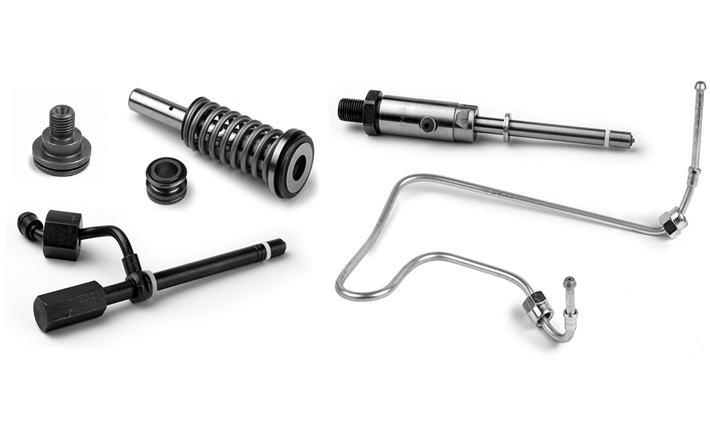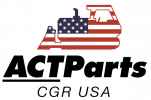
Fuel Systems are crucial to maintaining your engine performance. A poorly managed engine fuel system can cause excessive smoke, poor fuel economy, heavy carbon buildup within the combustion chambers, and short engine life. Therefore, investing in your systems is the best way to avoid costly damage. Our rebuild shop manager, Jerry, is sharing all of his fuel system maintenance tips to ensure your fuel systems are operating smoothly.
Fuel Caps
Too many people overlook proper maintenance of the fuel cap. The vent filter on the fuel cap should be cleaned every 100 hours. If not, air contaminates will bypass the filter and go directly into your fuel tank. When tightening your fuel cap, stop when you hear the click. This ensures the cap is secure, and you will avoid overtightening, which could cause damage to your seal.
Fuel Transfer Pumps
When installing fuel transfer pumps, loosen the purge valve. If not equipped, loosen the top outlet fitting on the priming pump. When fuel starts to come out, close the valve or tighten the fitting. Continue until the system is completely primed. Then you will be ready to start your engine.
Many fuel problems are misdiagnosed as injection pump issues when in actuality, low fuel pressure is more likely to be a transfer pump problem. To avoid this, make sure you tighten the hexagonal fuel line to transfer 15 ft-lbs to the pump. Use thread lock on the first three threads of the studs to bolt it. Tighten the transfer pump. The torque specs are 17 ft-lbs.
Fuel Priming Pumps
A bad fuel priming pump can cause air to enter the fuel system. Air can also enter the fuel system during filter replacement or when an engine runs out of fuel. A fuel primer is valuable for bleeding lines after these occurrences.
Bowls
Differentiating the water from the fuel can be difficult due to the water turning yellow inside the fuel system. It’s good to remember water is denser than fuel, so it will always settle in the bottom of the bowl separator.
Fuel Pressure Indicators
Do you know that some of the newer gauges are filled with argon gas? The new gauges are sealed and filled with argon gas to keep moisture out of the gauges, preventing corrosion from building up in the gauge.
Nozzles
To clean a diesel nozzle, remove and drain the fuel filter. Fill the entire filter and housing cavity with your chosen fuel additive and install a new fuel filter.
Injectors
The injector acts as a spray nozzle to break up the fuel line into a fine spray. Injectors do not control the fuel flow.
Did you know that a faulty fuel injector can cause severe engine damage that requires significant repair? Don’t let a small part turn into a major repair.
Other Fuel System Tips & Information
Did you know that fuel is chemically similar to the lubricants that are used in diesel engines? A slow leak will blend the fuel into oil. Typical operating temperatures may cause volatile parts of the fuel to vaporize. The fuel that remains in the oil is less volatile.
Learn more about the parts available to keep your fuel systems working optimally.



